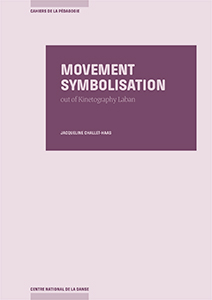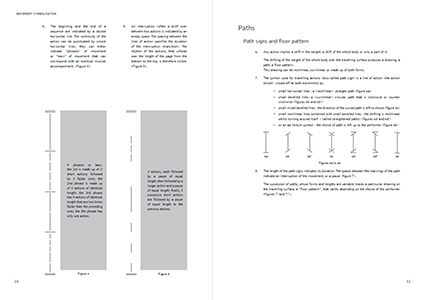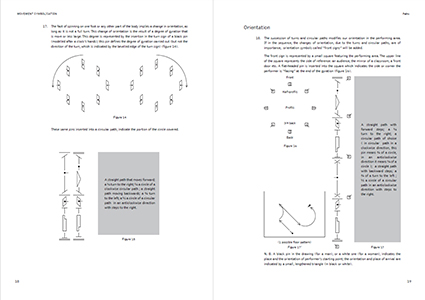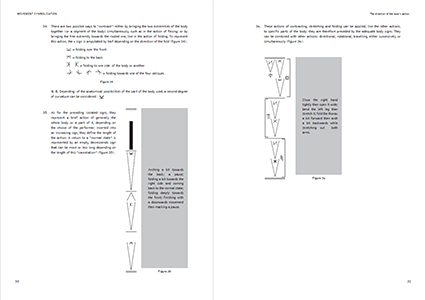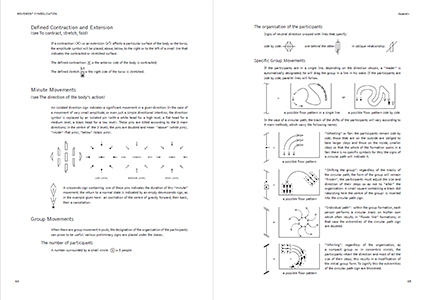This publication gives an overview of a series of signs stemming from Hungarian
dance artist Rudolf Laban's notation system for human movement.
Movement symbolisation consists of group of signs that come directly from Rudolf Laban's movement notation. It is intended to describe the “motivation” of a series of movements, their basic outline, their structure. Movement symbolisation also facilitates the summary translation of a sequence of movements that have already been formulated. It is a referential tool for improvisation and composition classes. It enables to build compositional grids, to keep and compare structures allowing the performer to have a frame of reference leaning on the given basics of an occupied space, an attributed time frame, the primary actions of the whole body or parts of the body in movement, the relation to the surrounding space or to one or several other participants, the dynamics, etc. Successfully used in any movement classes, it helps the teacher with the development of the creative potential of the participants.
Dance and notation teacher, notator, Jacqueline Challet-Haas has created the Laban notation cursus at the Conservatoire national supérieur de musique et de danse de Paris (CNSMDP). She is fellow of the International Council of Kinetography Laban (ICKL) since its foundation in 1961 and hon. vice-president of this organisation since 2013. She has published several books on dance and notation teaching (among them:
Handbooks of Kinetography Laban) and has translated into French two of Rudolf Laban's books :
The Mastery of Movement and
Modern Educational Dance.

